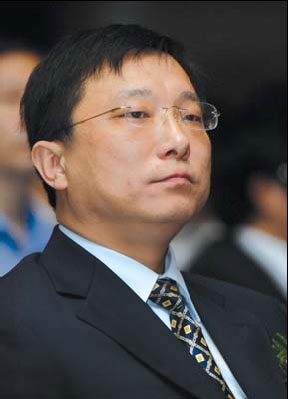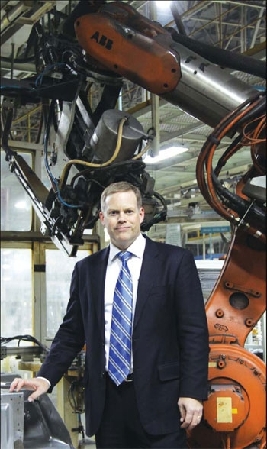Economy
Tech titan
Updated: 2010-12-10 10:31
By Andrew Moody, Yan Yiqi and Yang Yang (China Daily European Weekly)

Li Jun, president of Dawning Information Industry, one of China's leading supercomputer manufacturers. Provided to China Daily
Li Jun, president of Dawning Information Industry, based in Beijing and one of China's leading supercomputer manufacturers which has 34 of China's top 100 such computers, believes it is possible China will have global leading computer firms within a decade.
"It is very possible for China to have its own IBM or even IBMs in 10 years, since we have gone through the toughest phase (development)," he says.
Li says occupying the No 1 spot in super computers does not mean that China has suddenly leapt ahead in this technology.
But he adds: "With the government's support in the past two decades, China's super computer industry has been gradually maturing. Our technology has been hitting the world's top level."
Li says the focus of his company was not to be involved in a race to have the fastest super computer but to focus on developing its industrial applications.
"We are increasing our investment in industrialization. It is our major research goal to transfer the technology developed in laboratory to civil use," he says.
One of the most exciting frontiers is space and some believe it could be a matter of only a decade before Chinese astronauts walk on the moon.
The US still has a major lead in space technology, having put a man on the moon some 41 years ago.
One area that interests China is developing moon stations, where people can live and work and which the US seems to have abandoned as a goal.
Sun Jiadong, the chief designer of China's first satellite Dongfanghong-1, says the cost of going to the moon is still a major barrier.
"The US has been there. It is hard to tell who will be next. Moon-landing flights do not only involve pure technical problems but there are economic concerns also because it is very costly," he told Science Times newspaper recently.
Sun still believes there is a gap between China's existing space technology and that in the West.
"The development of China's satellite technology is hampered by the relatively backward electronics industry."
He believes, however, that China's space technology has advanced markedly in recent years and could be on the verge of a breakthrough.
"The rise of China as a big economy and the advancement of technology have laid the foundation for us to pursue progress in aerospace technology," he adds.
Back on Earth, China believes it has a chance of becoming a technology leader in electric cars.
The government is offering a subsidy of 60,000 yuan for those who buy an electric car in certain cities selected for a pilot program compared to just 3,000 yuan to those buying petrol-driven cars below 1,600 cc.
BYD's two electric models, despite being launched for some time, have yet to be fully rolled out and they will already face competition in international markets from the Chevrolet Volt and the Nissan Leaf, which was named in November as the 2011 European Car of the Year.

Stephen Dyer, principal at Shanghai-based consultants A.T. Kearney. Provided to China Daily
Stephen Dyer, principal at international management consultants A.T. Kearney in Shanghai, says China has high hopes to be a leader in this field.
"China is not leapfrogging everyone else in this area, however. It is more a case of it not being as far behind in this technology as it is with conventional cars, " he says.
He says whether electric cars become the vehicles of the future depends on the price of oil.
"At the moment it is around $80 (60 euros) a barrel which is not forcing people to switch to electric cars for their lower operating costs. The tipping point, however, I think would be around $200 a barrel," he says.
The world is changing. The US and Europe can no longer naturally assume dominance in technology.
New industries such as alternative energy, biotechnology, nanotechnology and genetics are wide open to those who are prepared to innovate.
With shorter and shorter cycles in which technology is developed, the mature markets of the West no longer have a key advantage in many of the new areas.
Bernhard Hartmann, managing director of A.T. Kearney Greater China, says the challenge for China is to convert its vast expenditure on research and development into commercial applications.
"If China manages to take full commercial advantage of its research and development, its future success will be substantially underpinned," he says.
Du Juan contributed to this story
E-paper

Ear We Go
China and the world set to embrace the merciful, peaceful year of rabbit
Preview of the coming issue
Carrefour finds the going tough in China
Maid to Order
Specials

Mysteries written in blood
Historical records and Caucasian features of locals suggest link with Roman Empire.

Winning Charm
Coastal Yantai banks on little things that matter to grow

New rules to hit property market
The State Council launched a new round of measures to rein in property prices.
